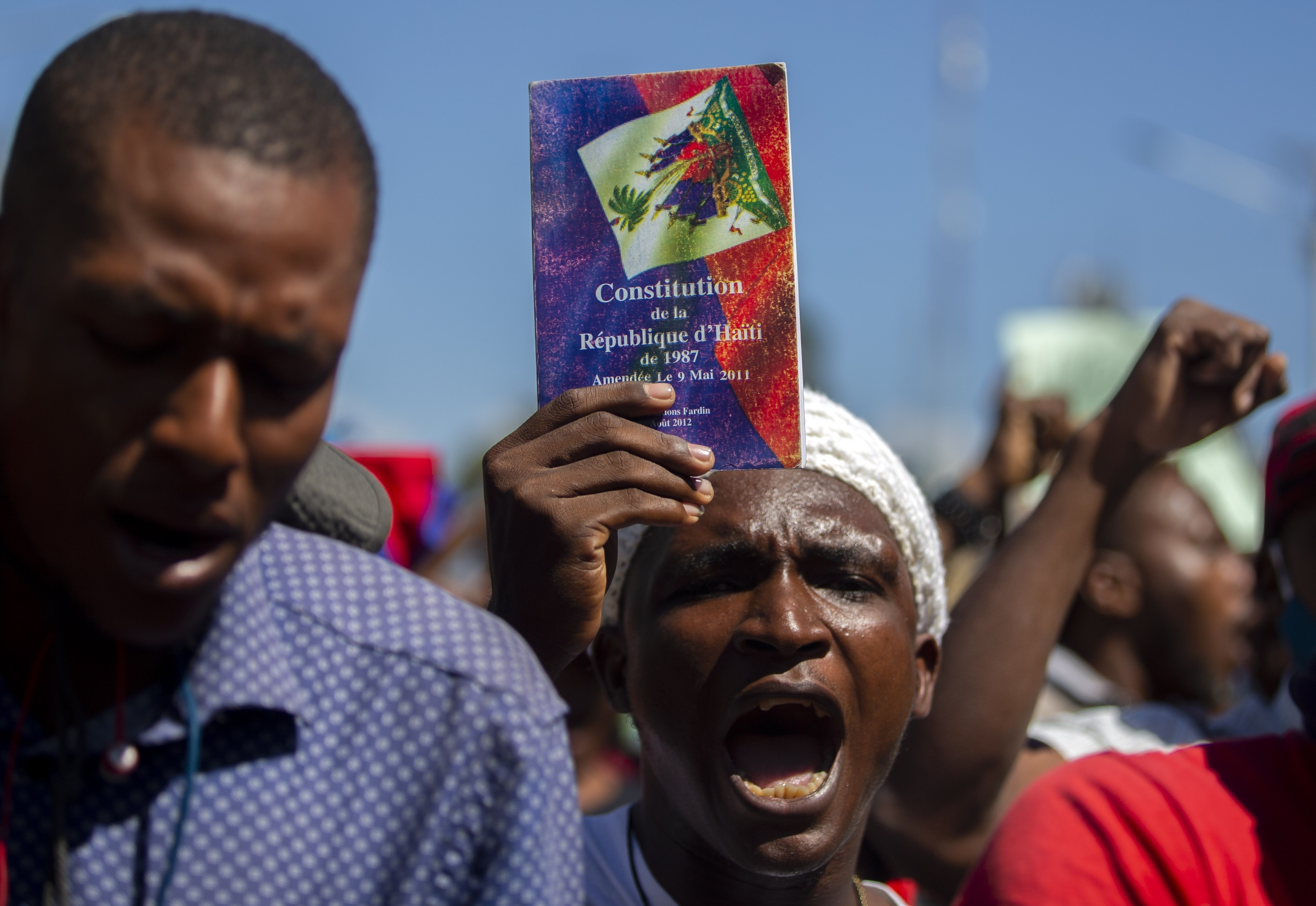Following the controversy of what year Haitian President Jovenel Moïse’s term started, thousands of people have protested, accusing him of attempting to start a dictatorship, according to Al Jazeera.
Protesters and opposition leaders attest that Moïse’s five-year term started on Feb. 7, 2016, the day his predecessor Michel Martelly’s term ended.
In 2015, elections were held for a new president who would take office in 2016. After disputed election results, a provisional president took office until a re-election took place in late 2016. Moïse was formally elected in 2016 and took office on Feb. 7, 2017, according to AP News.
Moïse and his supporters claim that since he did not take office until 2017, his term does not end until 2022.
“My Administration received from the Haitian people a constitutional mandate of 60 months,” Moïse wrote in a tweet on Feb. 7. “We have exhausted 48 of them.”
Fears of protests began in January after criminal activity in tandem with political uncertainty and a struggling economy grew, according to United Nations reports.
“Political tensions are resurfacing due to disputes over the timing and scope of elections,” said Spokesperson for the UN High Commissioner for Human Rights, Marta Hurtado. “Calls for mass protests have been growing.”
“The amount of people going hungry in the county has doubled, it’s gone from two million to four million people,” said Haitian economist Camile Charlemers to Al Jazeera. “The currency is devalued and there’s an inflation rate close to 25 percent.”
On Feb. 7, when many claim that the president’s term expired, thousands of people took to the streets in opposition to his refusal to leave office. Although most protests remained peaceful, reports of clashes between demonstrators and police who fired tear gas and rubber bullets emerged.
“It’s a strike against kidnapping, against hunger in the country,” said Rebert Nonsent, resident of the Haitian capital of Port-au-Prince, during a protest. “We are sending a clear message to the president to respect the constitution.”
On Feb. 10, Haitian police were accused of firing tear gas on the hundreds of demonstrators in Port-au-Prince and specifically targeting journalists covering the protests, according to Al Jazeera.
“Their job is to shoot the activists, throwing gas on all the press,” said protester Senat Andre Dufot. “We all noticed that they put a tear gas canister in the back of the pick-up [van] of the TV Pacific car.”
While opposition leaders protested, Haitian authorities announced that police arrested 23 people on Feb. 7 accused of trying to kill the president and overthrow his government, according to BBC.
“There was an attempt on my life,” Moïse said, during a live national address on Facebook. “I thank my head of security at the palace. The goal of these people was to make an attempt on my life. That plan was aborted.”
The people arrested on suspicion of planning a coup d’etat included a Supreme Court justice and senior political official.
“These people had contacted national palace security officials, high-ranking officers of the national palace whose mission was to arrest the president…and also to facilitate the installation of a new president,” Prime Minister Joseph Jouthe said.
Haitian opposition on Feb. 8 announced Supreme Court Justice Jean Louis was chosen to replace Moïse as provisional president, according to Reuters. Following the announcement, Moïse’s government published a decree announcing the retirement of three Supreme Court judges that were approached by the opposition to replace him.
According to The New York Times, Moïse has been running Haiti under presidential decree since Jan. 2020 when he suspended two-thirds of the senate, the entire lower Chamber of Deputies and every mayor in the country. The electoral council postponed legislative elections originally set for 2018 indefinitely, despite only having 11 elected officials.
“Moïse blamed parliament for the postponement, for failing to approve an electoral law, while his opponents accused him of maneuvers to hijack the process,” stated Human Rights Watch in their 2020 country report.
By ruling by decree, Moïse has been able to make decisions with little to no checks on his power. Some see this as an abuse of power and a step closer to dictatorship.
On Feb. 14, protesters were seen chanting “down with the dictatorship,” according to Al Jazeera.
Moïse and his supporters disagree.
“Haiti is not a democracy at risk. What the government is trying to do and we are doing our utmost to keep it is to preserve democracy in Haiti,” said Claude Joseph, Haiti’s foreign minister, in an interview with Al Jazeera.
“The government is paying attention to what the people is asking, they are asking for their lives to be improved. Those are legitimate concerns and we agree and the government is working on that.”
